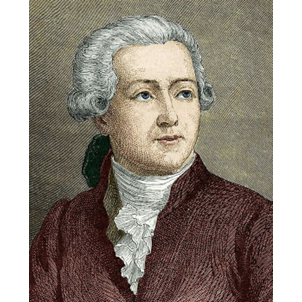Who is the Father of Chemistry?
If asked to recognize the father of chemistry, your most reliable answer would presumably be Antoine-Laurent Lavoisier, author of the book “Elements of Chemistry,” written in 1787. He compiled the first comprehensive—at that time—list of elements, identified and named oxygen and hydrogen, aided in developing the metric system, helped improve and normalize chemical nomenclature, and found that matter retains its mass even when it changes forms.
Antoine-Laurent Lavoisier, (August 26, 1743, to May 8, 1794)

He was a prominent French chemist and an influencing personality in the 18th-century chemical revolution who developed an experimentally based theory of the chemical reactivity of oxygen and coauthored the modern system for naming chemical substances.
Early Education
As a youth, he exhibited an unusual studiousness and concern for the public good. After studying the humanities and sciences at the Collège Mazarin, Antoine Lavoisier pursued law. Nevertheless, he dedicated much of his time to lectures on physics and chemistry and to working with leading experts.
Accomplishments
- Antoine Lavoisier concluded that oxygen was a chief substance in combustion, and he gave the element its name.
- Lavoisier also contributed to initial ideas on composition and chemical modifications by asserting the radical theory, believing that radicals, which function as a single group in a chemical process, combine with oxygen in reactions.
- He developed the modern system of naming chemical substances and has been called the “father of modern chemistry” for his emphasis on careful experimentation.
- Who is the father of mathematics?
Father of Chemistry: Different Branches
Those known as the father of a scientific field in chemistry are regarded as the founder of that scientific field. In some fields, various people are acknowledged as the founders; meanwhile, in others, the title of being the “father” is debatable.
| Subject | Father | Reason |
| Atomic theory (early) | Democritus | Founder of atomism in cosmology |
| Atomic theory (modern) | Father Roger Boscovich | First coherent description of atomic theory, well over a century before modern atomic theory emerged First scientific description of the atom as a building block for more complex structures |
| Chemical thermodynamics (modern) | Gilbert Lewis, Willard Gibbs, Merle Randall, and Edward Guggenheim (founders) | Books: Thermodynamics and the Free Energy of Chemical Substances (1923) and Modern Thermodynamics by the Methods of Willard Gibbs (1933); because of the major contributions of these two books in unifying the applications of thermodynamics to chemistry |
| Chemistry (early) | Jabir ibn Hayyan (Geber) | Introduced the experimental method in alchemy (d. 815) |
| Chemistry (modern) | Antoine Lavoisier Robert Boyle Jöns Berzelius John Dalton (founders) | Book: Elements of Chemistry (1787) Book: The Sceptical Chymist (1661) Development of chemical nomenclature (1800s) Revival of atomic theory (1803) |
| Nuclear chemistry | Otto Hahn | Book: Applied Radiochemistry (1936) First person to split an atomic nucleus (1938) Nobel Prize in Chemistry for discovery of nuclear fission (1944) |
| Periodic table | Dmitri Mendeleev | Arranged sixty-six elements (known at the time) in order of atomic weight by periodic intervals (1869) |
| Physical chemistry | Svante Arrhenius Wilhelm Ostwald Hermann von Helmholtz Willard Gibbs (founders) | Devised much of the theoretical foundation for physical chemistry through their publications off, On the Equilibrium of Heterogeneous Substances(1876), and Thermodynamik chemischer Vorgange(1882) |
Another traditional choice for the title of father of chemistry is Jabir ibn Hayyan, a Persian alchemist who lived around 800 who applied scientific principles to his studies. Other people seldom perceived as the father of modern chemistry are Robert Boyle, Jöns Berzelius, and John Dalton.
We’ve created this content for informational purposes only, and it reflects the views of its respective authors/entities (freelancers/interns) and not those of Winspire Magazine. Winspire Magazine does not endorse or vouch for the accuracy of the information provided in this content. It is the reader’s responsibility to verify and ensure the information is correct and up-to-date. Winspire Magazine disclaims any liability or responsibility for any damages or losses from using this content. Therefore, readers should take all necessary steps to verify the accuracy and reliability of any information presented in this content.


